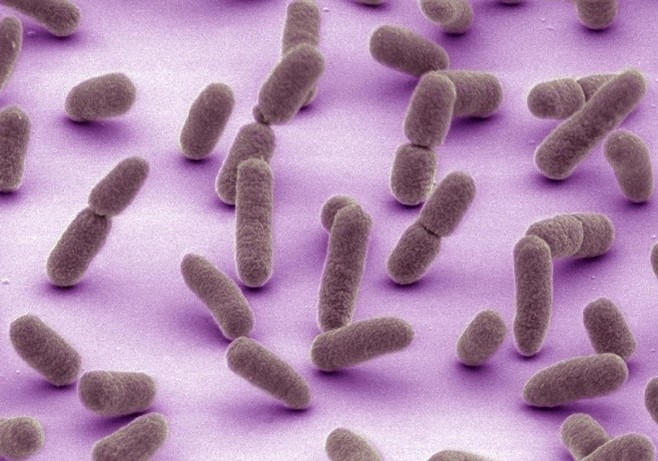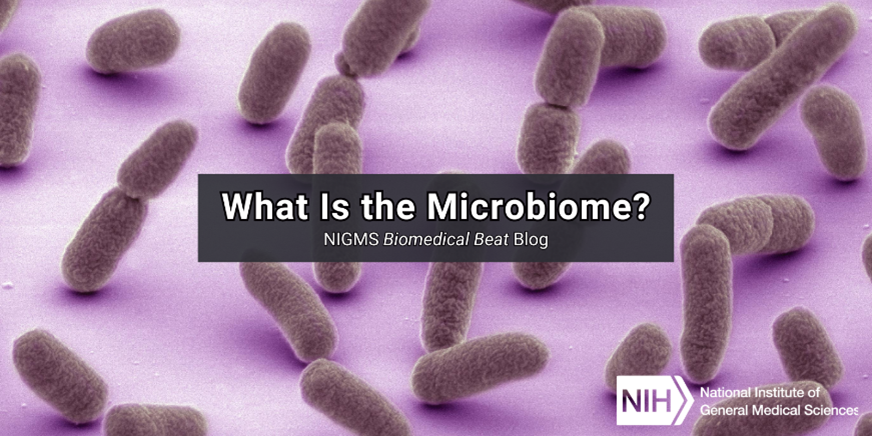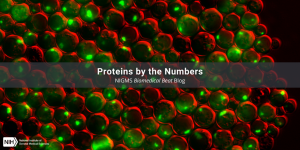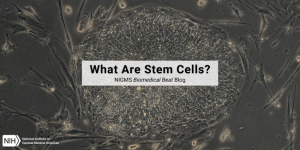Have you ever noticed a skin care product advertised as “microbiome friendly” and wondered what that meant? The microbiome is the collection of all the microbes—including bacteria, viruses, and fungi—that live in a specific environment, such as on the skin or in the digestive tract.

Credit: Mark Ellisman and Thomas Deerinck, National Center for Microscopy and Imaging Research, University of California, San Diego.
It’s a common misconception that all microbes are harmful—in truth, much of the human microbiome is made up of microbes that form beneficial symbiotic relationships with us. Microbiome-friendly skin care products don’t have antimicrobial properties that could harm the beneficial bacteria that live on our skin.
Your Microbiome and You
There are many ways that your microbiome affects your health, including supporting digestion. Fruits and vegetables are an important part of a healthy diet, but humans don’t have the enzymes needed to fully break down their tough starches. Instead, specific species of bacteria that live in the large intestine break down those plant starches to extract the nutrients for our benefit.
The gut microbiome also plays an important role in controlling the immune system. Gut bacteria produce anti-inflammatory molecules that turn down the local immune response, allowing the gut bacteria to continue to grow.
The National Institutes of Health-funded Human Microbiome Project aimed to characterize the human microbiome in detail and to analyze its role in disease. This multiyear research project studied the microbes that live in or on the nasal passages, mouth, skin, gut, and urinary tract of healthy human volunteers and compared them with the microbes of volunteers with diseases such as type 2 diabetes. Through this project, researchers identified roughly 3,000 bacterial species by sequencing their genomes, providing new insights on the complexity of microbiomes throughout the body.
A Disrupted Microbiome
Dysbiosis—the disruption of a body system’s normal microbiome—can negatively affect our health. For instance, some patients with Crohn’s disease, an inflammatory gastrointestinal disease, are missing a specific gut bacterial species that makes an anti-inflammatory molecule. The lack of this species—and the molecule it makes—may contribute to the inflammation seen in Crohn’s disease. In addition, gum disease is associated with the overgrowth of specific bacterial species in the mouth. A dentist treats the disease by removing the buildup of dental plaque on the teeth and under the gums, returning these bacteria to normal levels.
Because antibiotics can’t distinguish between good and bad bacteria, they can sometimes kill the good bacteria in the gut and cause dysbiosis. When this happens, potentially harmful species can overgrow, which may cause disease. This is one of the reasons why you might have an upset stomach after taking antibiotics. Thankfully, researchers have found that eating probiotic foods like yogurt, which contains good strains of bacteria, can help alleviate gut microbiome disruptions after antibiotic use.
The next time you find a microbiome-friendly product, take a moment to appreciate the many microbes helping to keep you healthy.

Learn more in our Educator’s Corner.







